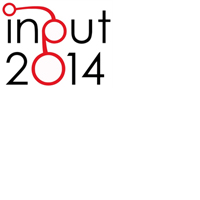Urban Smartness Vs Urban Competitiveness: A Comparison of Italian Cities Rankings
Abstract
This paper describes a part of the research carried out by the Department of Civil, Architectural and Environmental Engineering (DICEA) of the University of Naples “Federico II”, within the Project Smart Energy Master for the energy management of territory, financed by PON 04a2_E R&C Axis II, from 2012 to 2015. Today that the idea of smart city draws the attention of urban planners and policy makers and, at the same time, global competitiveness is considered essential for the success of a city, the paper aims to investigate the relationship between the concept of smart city and that of competitive city, identifying common characteristics and differences and answer the question: is “smartness” a new concept for urban studies? The analysis has been conducted in the Italian context, comparing the competitive structure of Italian provinces with their performance as smart cities. To rank Italian provinces because of their level of competitiveness, a previous ranking, carried out in 1995, has been updated with the most recent data available and the new hierarchy, thus obtained, has been compared with that of Italian smartest cities proposed by Forum PA. The benchmarking shows that smartness and competitiveness are strictly connected: today, a city needs to improve its smart quotient in order to be more attractive and so more competitive, in fact, the efficiency and livability of cities, sought by potential citizens, can be improved by using ICTs, as supported by the advocates of smart cities, and represent a strategic factor for gaining a competitive advantage.Downloads
References
Beaverstock, J.V., Taylor, P.J., Smith R.G. (1999), “A roster of world cities”, Cities, 16(6), 445-458.
Begg, I. (1999), “Cities and Competitiveness”, Urban Studies, 36(5-6), 795-809.
Beguinot, C., Cardarelli, U. (eds.) (1992), Per il XXI secolo una enciclopedia. Città cablata e nuova architettura, Università degli Studi di Napoli “Federico II” (Di.Pi.S.T.), Consiglio Nazionale delle Ricerche (I.Pi.Ge.T.), Napoli.
Economist Intelligence Unit (2012), Hot spots – Benchmarking global city competitiveness.
EU Report (2014), Mapping Smart Cities in the EU.
Forum PA (2013), ICity Rate 2013 – La classifica delle città intelligenti italiane.
Fistola, R. (2013), “Smart City. Riflessioni sull’intelligenza urbana”, TeMa – Journal of Land Use, Mobility and Environment, 6(1), 47-60.
Galderisi, A., Gargiulo, C. (2002), “Processi di internazionalizzazione ed evoluzione dei sistemi urbani: una lettura della struttura competitive delle provincie italiane”, in Gargiulo, C., La città tra competizione e riqualificazione, Università degli Studi di Napoli “Federico II”, Dipartimento di Pianificazione e Scienza del Territorio – Collana di studi di urbanistica.
Giffinger, R., Fertner, C., Kramar, H., Kalasek, R., Pichler-Milanovic, N., Meijers E. (2007), Smart cities. Ranking of European medium-sized cities, Final Report, Centre of Regional Science, Vienna UT.
Hall, P. (2005), “The World’s Urban Systems: a European Perspective”, Global Urban Development, 1(1).
IBM Smarter Cities (2012), Smarter, More Competitive Cities, NY.
Institute for Management Development (2013), The World Competitiveness Scoreboard 2013.
Komninos, N. (2002), Intelligent cities: innovation, knowledge systems and digital spaces, Spon Press, London.
Mazzeo, G. (1992), “Metodi quantitativi per la lettura delle Aree Metropolitane del Mezzogiorno”, in Papa, R., Innovazione tecnologica e aree metropolitane del mezzogiorno, Università degli Studi di Napoli “Federico II”, Dipartimento di Pianificazione e Scienza del Territorio – Collana di studi di urbanistica, 185-233.
Papa, R., Gargiulo, C., Galderisi, A. (2013), “Towards an Urban Planners’ Perspective on Smart Cities”, TeMa – Journal of Land Use, Mobility and Environment, (6)1, 5-17.
Rondinelli, D A., Johnson, J.H., Kasarda Jr. and J.D. (1998), “The Changing Forces of Urban Economic Development: Globalization and City Competitiveness in the 21st Century”, Cityscape, 3(3), 71-105.
Russo, L. (2014), “The Effectiveness of Planning Regulation to Curb Urban Sprawl”, TeMa – Journal of Land Use, Mobility and Environment, 7(1), 101-114.
Shapiro, J. M. (2008), “Smart cities: quality of life, productivity, and the growth effects of human capital”, The Review of Economics and Statistics, 88(2), 324-335.
Taylor P.J., Derudder B. (2004), “Porous Europe: European Cities in Global Urban Arenas”, Tijdschrift voor Economische en Sociale Geografie, 95(5), 527-538.
Tiboni, M., Rossetti, S. (2012), “L’utente debole quale misura dell’attrattività urbana”, TeMa – Journal of Land Use, Mobility and Environment, 5(3), 91-102.
Van Soom, E. (2009), “Measuring levels of supply and demand for e-services and e-government: a toolkit for cities”, Smart Cities Research Brief, 3.
World Economic Forum, (2013), The Global Competitiveness Report 2013-2014.
SITOGRAPHY
Boyd Cohen: The Top 10 Smartest European Cities, http://www.fastcoexist.com/1680856/the-top-10-smartest-european-cities, last visit in March 2014.
Forum PA – Icity Lab, http://www.icitylab.it/, last visit in March 2014.

Copyright (c) 2014 Tema. Journal of Land Use, Mobility and Environment

This work is licensed under a Creative Commons Attribution 4.0 International License.
Authors who publish in this journal agree to the following:
1. Authors retain the rights to their work and give in to the journal the right of first publication of the work simultaneously licensed under a Creative Commons License - Attribution that allows others to share the work indicating the authorship and the initial publication in this journal.
2. Authors can adhere to other agreements of non-exclusive license for the distribution of the published version of the work (ex. To deposit it in an institutional repository or to publish it in a monography), provided to indicate that the document was first published in this journal.
3. Authors can distribute their work online (ex. In institutional repositories or in their website) prior to and during the submission process, as it can lead to productive exchanges and it can increase the quotations of the published work (See The Effect of Open Access)
